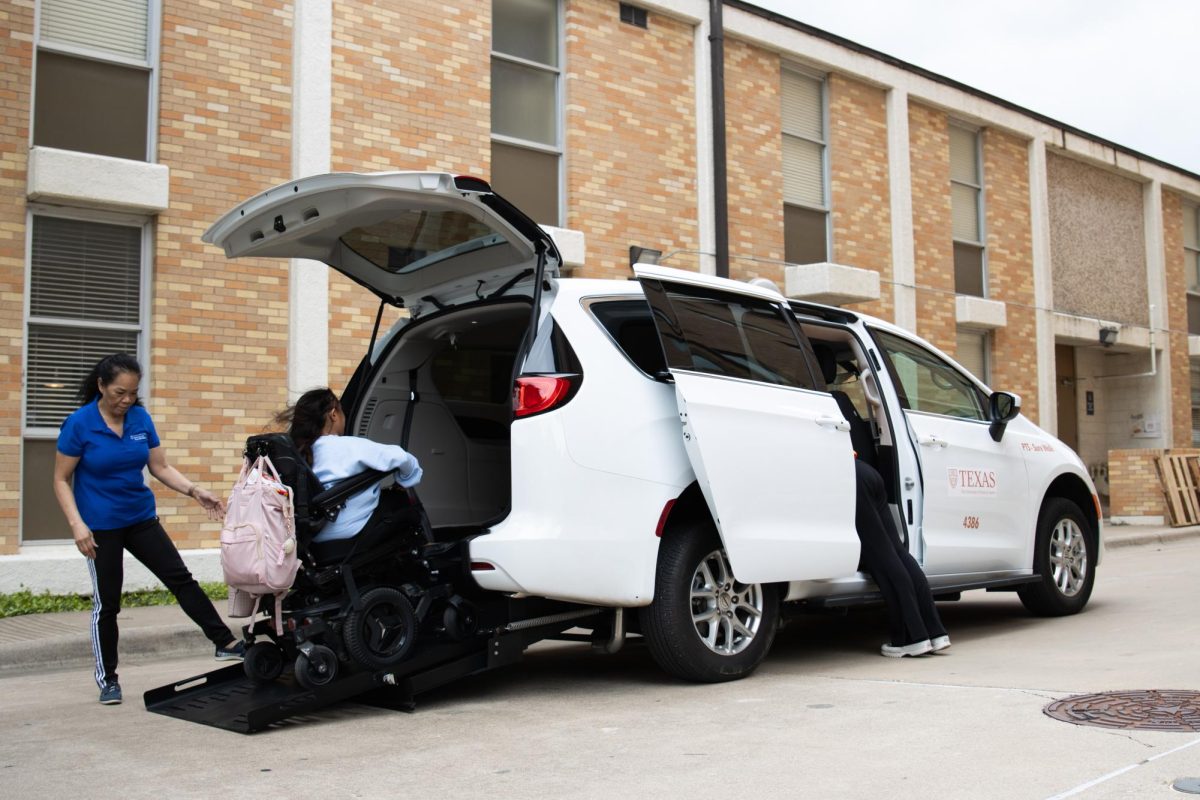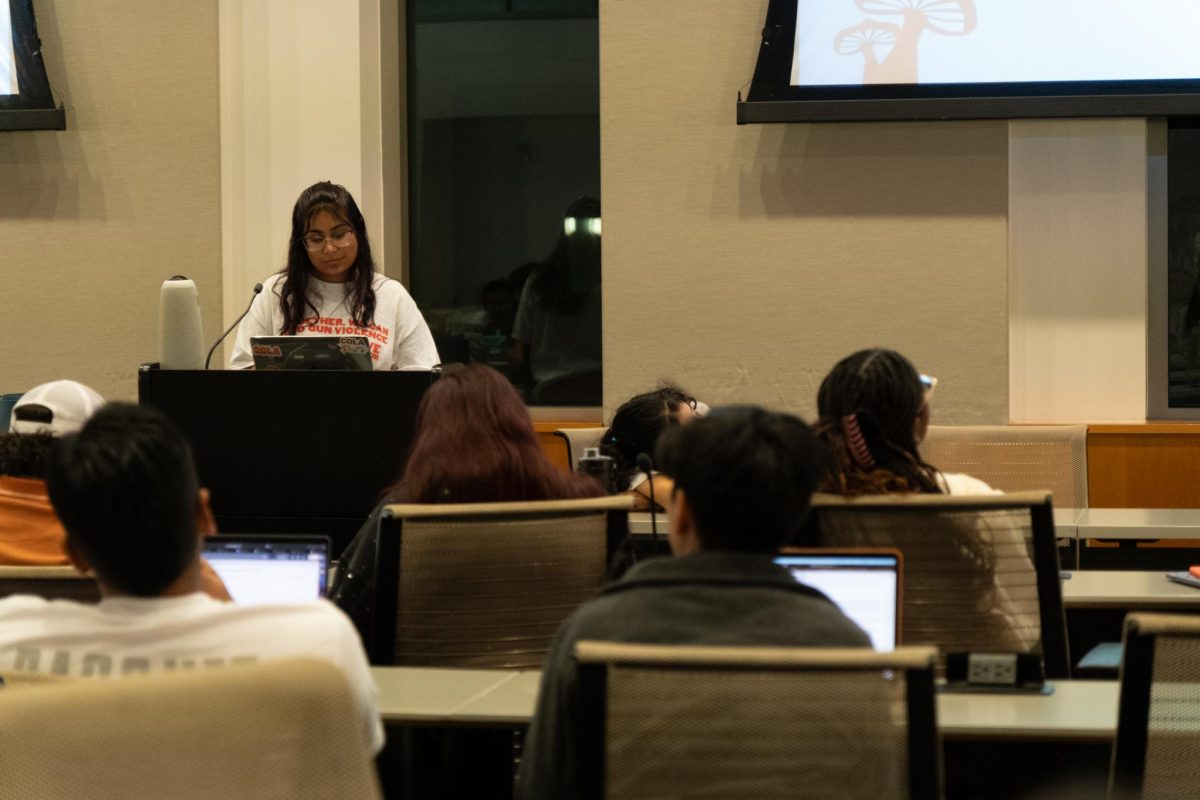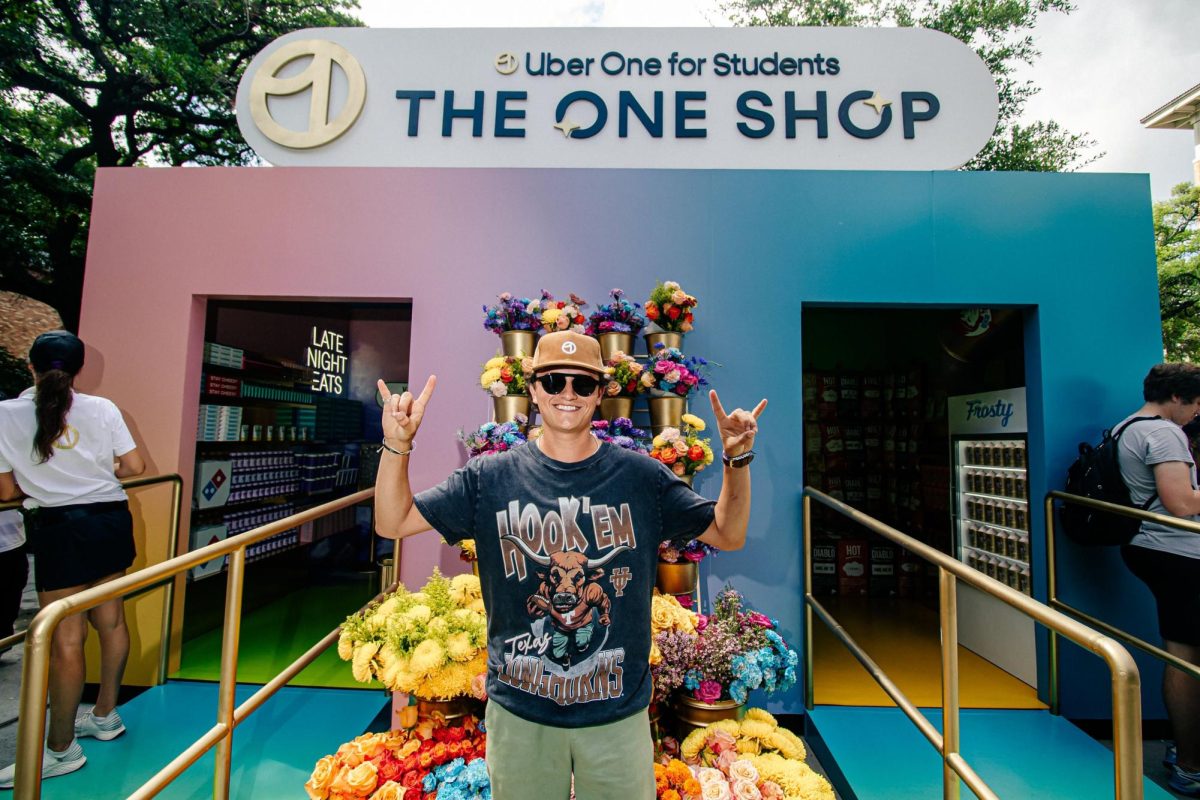The Food Security Agency, in partnership with Parking and Transportation Services, launched a grocery shuttle pilot program on March 23.
The shuttle, which runs from 10 a.m. to 2 p.m. on select Saturdays and Sundays, will pick up students from Almetris Duren Residence Hall and Dobie Twenty21, take them to H.E.B and drop them off at their residences.
Erica Howard, co-director of the Student Government Food Security Agency, said the shuttle isn’t a novel idea, as she and her team identified 17 other universities with similar programs. However, it helps fill a crucial need given about one in three UT students are food insecure, she said.
Howard, a public affairs graduate student, said while the UT Outpost supports students by providing up to 25 pounds of groceries per month, one meal consists of 1.2 pounds of food. Thus, the UT Outpost can only provide about 20 meals per month, leaving a noticeable need for grocery access, she said.
Students can also access pharmacies, money orders and car registration renewals through grocery stores, Howard said.
“Having access to the grocery store is actually about many more things than just groceries,” Howard said. “There are many ways access to a grocery store can benefit marginalized students.”
While students can use CapMetro buses for free, the logistics and transportation time could turn a trip to a grocery store located ten minutes away into an hours-long endeavor, public health junior Dat Duong said.
“That’s three to four hours that students don’t have,” Duong said. “We can barely find the time to eat, let alone spare four hours to get groceries.”
The shuttle will run every weekend until the semester ends, aside from select University events and holidays, according to the website. The system could serve between 60 and 80 students each weekend, with each van driving four to five students at a time. Parking and Transportation Services will provide shuttles and drivers for the program.
Duong said the project prompts a broader conversation about food accessibility near campus, and he hopes the shuttle can serve as a tangible action item to address insecurity.
“Oftentimes, there’s a stigma behind food insecurity,” Duong said. ”It’s important that students know that there is a support system out there for them to use and that they can take advantage of these resources without feeling any type of pressure.”





















